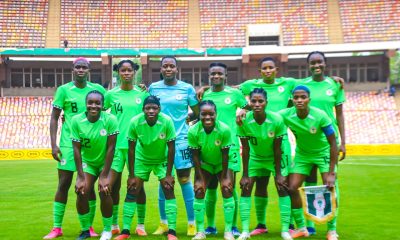Health
Energy in Nigeria from Digital Waste

OAKLAND, California — QuadLoop, a Lagos based mostly firm, has turned digital waste into photo voltaic lanterns. The availability of energy in Nigeria is a big concern which is what drove founder Dozie Igweilo to give you an answer. The identify of the product is Idunnu, that means pleasure within the Yoruba language. QuadLoop develops the lantern with 70% coming from e-waste supplies that comprise the batteries and body and the remaining 30% from imported elements. The body is fabricated from glass from discarded tv screens and pc displays. The price is about $50 and the goal market is hospitals which might be situated in rural areas with out entry to an influence grid or fixed energy.
Energy in Nigeria
Energy in Nigeria consists of oil, gasoline, photo voltaic and hydro sources with the potential to generate 12,522 MW of energy. Nonetheless, energy vegetation are “solely in a position to dispatch round 4,000 MW, which is inadequate for a rustic of over 195 million individuals,” in line with USAID.
Consequently, Nigeria has one of many lowest internet electrical energy technology per capita charges on the earth. To succeed in common electrical energy by 2030, 500,000 to 800,000 households should be linked per 12 months, largely in Nigeria’s rural areas. The agricultural areas of Nigeria undergo probably the most from lack of energy with an electrification price of solely 39%.
In line with the Federal Ministry of Well being, there are 1.4 well being care amenities per 10,000 individuals in Nigeria. The overwhelming majority of those are main healthcare amenities at 85.3%. An estimated 30%-40% of those main well being care amenities are purposeful and 40% don’t have entry to electrical energy.
Nearly all of main well being care amenities in Nigeria are publicly owned, which suggests they’ve a restricted finances for electrical energy and operational actions. In consequence, sufferers’ funds typically complement these prices.
Present Plans
In 2021, the Federal Authorities of Nigeria devised a plan to carry electrical energy to 304 well being care amenities and colleges throughout the nation. This plan was a part of Nigeria’s Nationwide Financial Sustainability Plan for post-COVID-19 restoration and though it’s nonetheless a precedence, there are challenges to deploying it, in line with Sustainable Vitality for All (SEforALL).
In line with USAID, the ability sector in Nigeria experiences challenges relating to “electrical energy coverage enforcement, regulatory uncertainty, gasoline provide, transmission system constraints and main energy sector planning shortfalls which have saved the sector from reaching business viability.”
Not too long ago SEforALL introduced in a roadmap to offer the Authorities of Nigeria with data-driven suggestions for electrifying well being amenities. SEforALL developed the challenge in coordination with Powering Healthcare Africa Undertaking, Rural Electrification Company (REA), the Nationwide Major Well being Care Improvement Company (NPHCDA), USAID Nigeria Energy Sector Program (NPSP) and USAID Built-in Well being Program (IHP).
Although there are insurance policies at the moment beneath improvement to impress healthcare amenities all through Nigeria, the obstacles stop rapid options. Moreover, lower than 20% of well being care amenities in Nigeria use solar energy, in line with SEforALL.
Quadloop’s product is a direct and sustainable resolution to the ability scarcity. Not solely does it assist get rid of the affected person’s supplemented value of energy, however it might enhance the variety of functioning main well being care amenities and convey care to many extra individuals.
Firstly of launching their product, the Quadloop workforce spoke to hospitals and maternity properties that lack the technological gear, in line with How We Made it in Africa. In addition they did roadshows to promote their product. Now, they can promote bigger portions of the photo voltaic lantern by means of its web site and on-line platforms like Jumia and Konga. Founder Dozie Igweilo says that lots of people want photo voltaic lanterns, so there’s a excessive market demand. However, the corporate provides reductions to their clients who buy excessive volumes of battery capability to remain aggressive.
Quadloop has plans to develop its shopper base to international locations in Central Africa similar to Rwanda and Botswana which have comparable energy points as Nigeria, and in line with Igweilo, the long run is brilliant for using waste for digital manufacturing, How We Made it in Africa reviews.
– Jordan Oh
Picture: Flickr
























